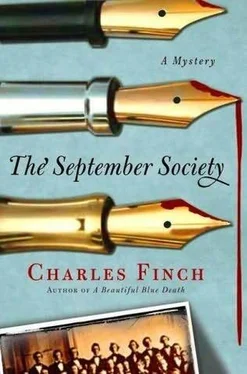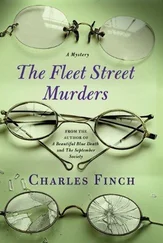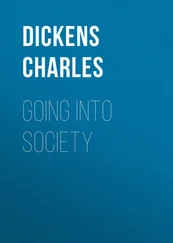Charles Finch - The September Society
Здесь есть возможность читать онлайн «Charles Finch - The September Society» весь текст электронной книги совершенно бесплатно (целиком полную версию без сокращений). В некоторых случаях можно слушать аудио, скачать через торрент в формате fb2 и присутствует краткое содержание. Жанр: Исторический детектив, на английском языке. Описание произведения, (предисловие) а так же отзывы посетителей доступны на портале библиотеки ЛибКат.
- Название:The September Society
- Автор:
- Жанр:
- Год:неизвестен
- ISBN:нет данных
- Рейтинг книги:4 / 5. Голосов: 1
-
Избранное:Добавить в избранное
- Отзывы:
-
Ваша оценка:
- 80
- 1
- 2
- 3
- 4
- 5
The September Society: краткое содержание, описание и аннотация
Предлагаем к чтению аннотацию, описание, краткое содержание или предисловие (зависит от того, что написал сам автор книги «The September Society»). Если вы не нашли необходимую информацию о книге — напишите в комментариях, мы постараемся отыскать её.
The September Society — читать онлайн бесплатно полную книгу (весь текст) целиком
Ниже представлен текст книги, разбитый по страницам. Система сохранения места последней прочитанной страницы, позволяет с удобством читать онлайн бесплатно книгу «The September Society», без необходимости каждый раз заново искать на чём Вы остановились. Поставьте закладку, и сможете в любой момент перейти на страницу, на которой закончили чтение.
Интервал:
Закладка:
Upstairs to his room in a moment. First he wanted a few more seconds to think.
Before him was a book he had borrowed from Andy Scratch, called The Heroes of Punjab. It told the story of the Anglo-Sikh wars, which were by now about twenty years in the past. One chapter briefly mentioned that the September Society had been created after the war by the surviving lead officers of the forces there during the period. The Society maintained close bonds, according to the book.
The question was: Why did a society of former military officers want anything to do with George Payson and Bill Dabney? What on earth connected them? Or was it a false lead? Swallowing the last of his beer, he decided he needed to look into Bill Dabney a bit more. In good time. For now, to bed. It was only half past ten, but he was completely and entirely exhausted. Still, it was a tiredness tinged with satisfaction, the end product of a long, good day of work.
Lenox woke up later than usual the next morning, Monday, with the rays of the sun striping his sheets. He pulled the bell by his desk and stood up to put on his robe and slippers. In about ten minutes there was a sharp knock on the door, and young Thomas Tate came in with a tray that once again must have weighed about what he did. Lenox gave him another sixpence and thanked him with a smile, before fixing himself a quick cup of tea. Always important to have that first gulp so that one could feel human again.
He ate at the table by the windows that peered into New College. It was a pretty, clear day, when yellow leaves hung thick on the branches and a breath of wind scattered another dozen to the ground. The sun was watery but bright, and the sky a pale, early blue. Perhaps because Oxford had so little to do with factories and trains, or perhaps because it was in a valley, shielded by its depth, there was rarely the blinding fog of London here. It refreshed Lenox. In twenty years it might not be any longer, but for now Oxford was still the country, with meadows at the end of every street and many roads made only of dirt. Cleaner air, and birds still giving morning voice to their songs.
The September Society. Could it be an accident? One thing was a relief to him: If the boys had been either of them murdered, even if their bodies had been thrown in the Thames, something would have come out by now. Lenox had instructed Graham to wire up any accounts of unidentified bodies, and the only report that had come was of an elderly man discovered in Covent Garden, stabbed to death without identification on his person. Nothing had been reported closer to Oxford.
He ate a last bit of toast and poached egg, took a last swallow of tea, and looked at his watch. Quarter to nine. He just had time to interview Professor Hatch before catching the 11:50 to Paddington.
Hatch’s house, which was located only a few steps away at 13 Holywell Street, was an old, narrow stone place with four windows facing the street and a green front door. It was painted white, and to match the door there was a green roof. Rather nice for a professor.
A maid answered the door and led Lenox into a front drawing room that was small and close, filled with science journals spilling off of bookcases. Very little light made its way through the blinds.
The professor took quite a long time to come down, and after a while Lenox realized that he might have woken the man. When at last he came into the room he was a surprisingly tall and hearty chap, indeed strong, though with sallow skin and black circles underneath his eyes. He had a mustache and wore an impeccable dark suit.
“John Hatch,” he said.
Lenox introduced himself, and the two men shook hands.
“How may I help you?” Hatch said.
“Nobody has seen Bill Dabney or George Payson in two days, and I’m trying to find them.”
Hatch looked genuinely puzzled, if not all that concerned. “I’m afraid I’m not the most likely man to have seen them,” he said. “Though I’m sorry to hear of it. Have you checked around much?”
“Yes, a bit. Oxford is such a small town that it seems probable that a friend or a classmate would have caught sight of one of them. When did you last see them?”
Hatch considered the question. “Both about a fortnight ago. I had a small gathering here at my house for the students I advise, as I often do. Bill and George usually came.”
Lenox made a note on his pad. “Any idea where they may have gone?”
“None at all, unless they went home.”
“No.”
“Then I don’t, I’m sorry to say. London? Your guess is as good as mine.”
“What are they like, the two boys?”
“Both bright. Above middling, anyway, though I really couldn’t say with any expertise. Medicine is my field, not classics or history. Dabney was more introverted than Payson. Both the sort of gentlemen to be popular in a place like Oxford. Payson was at Westminster like myself, so we had that in common. I don’t know what else to say.”
“Have you heard of the September Society?”
“Can’t say that I have, no.”
“Have you noticed Dabney and Payson pulling apart from the other students at all?”
“Not the sort of thing I’d be likely to notice. I’m not in college much, except for hall, and then I sit with my colleagues at high table.”
“Did you know they kept a cat?”
“Did they?”
“It was found dead.”
“That seems odd.”
“Decidedly.”
“I could use the body in class, if you like.”
“No, that’s all right.”
“Well, it’s the same to me.”
“Was either of them at all in trouble, that you knew of? Financially? Did they break rules?”
“Just in normal amounts. Financially, I couldn’t say. Not really my place, is it?”
“Some might say it was.”
“No,” Hatch said firmly. “Not quite done.”
“You speak as if you were more friend than advisor to them.”
“I admit that, to be sure. Oxford’s a dull place, Mr. Lenox. I don’t mind a coupe of champagne or a glass of beer here and there. I miss London something devilish. And the lads and I have more in common than I do with the dons.”
There was a strange kind of unease in the air. Lenox couldn’t put his finger on it.
“You don’t know anything about Dabney’s background, then?” he said.
Hatch raised his eyebrows in contemplation. “Certainly not much. I know he’s from north of here, somewhere in the Midlands, I believe. I know that he shares digs with Thomas Stamp, rather a friend of the two boys.”
“You haven’t met Dabney’s parents?”
“No. The master will have, Banbury.”
“Payson’s?”
“Oh, yes, his mother. Father’s dead, I heard.”
“How did his mother strike you?”
“A little bit rattled by life, perhaps? Introspective, I would call it.”
Lenox nodded. “Is there anything else you can think of? Anything relevant?”
“No, not particularly. Sorry.”
“Oh-by the way, when did you start giving your parties?”
“I’ve been here many years. Began with them straight away.”
“I see. Thanks again.”
Lenox showed himself out. A decidedly strange man, he thought to himself. Why had he stayed in Oxford for eight years if he didn’t like it? Walking briskly past Trinity College, Lenox also thought how unusual it was for somebody innocent to lie twice in twenty minutes to a complete stranger. For one thing, Stamp had mentioned that Dabney and Payson took the cat to Hatch’s parties and let it wander around his house. For another, he and Scratch had both said that the last party was four nights before, on Thursday, not eight or nine, and certainly not a fortnight.
CHAPTER TWELVE
B efore he left, Lenox stopped by Lincoln College again.
Читать дальшеИнтервал:
Закладка:
Похожие книги на «The September Society»
Представляем Вашему вниманию похожие книги на «The September Society» списком для выбора. Мы отобрали схожую по названию и смыслу литературу в надежде предоставить читателям больше вариантов отыскать новые, интересные, ещё непрочитанные произведения.
Обсуждение, отзывы о книге «The September Society» и просто собственные мнения читателей. Оставьте ваши комментарии, напишите, что Вы думаете о произведении, его смысле или главных героях. Укажите что конкретно понравилось, а что нет, и почему Вы так считаете.












